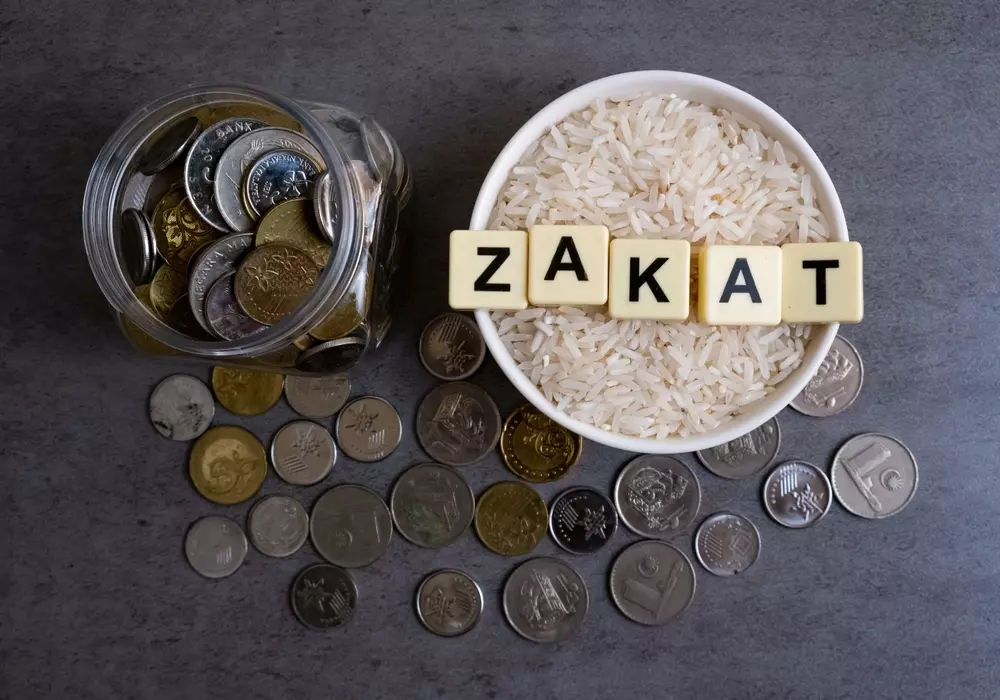The 12th and final month of the Islamic Calendar is the holiest one, and this is the time in which Muslims observe Eid al-Adha. Over the days of Eid al-Adha, Muslims were traditionally required to slaughter an animal and split the meat into three equal parts. One part was kept by the person who carried out the sacrifice for their family, another part was given to their friends and neighbours, and the third part was given to those in need. Today, it’s not possible for Muslims in the UK to slaughter an animal themselves because of laws surrounding this. As a result, in this day and age, Muslims typically donate to a charity to carry out this sacrifice, which is otherwise known as Udhiyah or Qurbani.
What is Udhiyah?
The term Udhiyah refers to the animal sacrifice of livestock made during the days of Eid al-Adha. An individual doesn’t necessarily have to slaughter the animal themselves, and it’s more common for a Muslim to donate to a charity instead.
Udhiyah stems from the story of the Prophet Ibrahim (AS), who was willing to sacrifice his son, Ismail (AS), in the name of Allah (SWT). Since the Prophet Ibrahim (AS) and Ismail (AS) were prepared to make the ultimate sacrifice upon being told to do so by Allah (SWT), He rewarded the pair by putting a ram in Ismail’s (AS) place. Ismail (AS) was left unharmed, and Muslims now carry out Udhiyah to mirror this sacrifice and devotion to the Creator.
What Are the Rules of Udhiyah (Qurbani)?
While Udhiyah involves the slaughtering of animals, there are a number of rules that must be followed to ensure that the sacrifice is as humane as possible. For instance, Udhiyah animals must be of a certain age before they’re eligible for Udhiyah:
- Sheep and goats must be at least one year old
- Cattle, buffalos, and oxen must be at least two years old
- Camels must be at least five years old
In addition to these age requirements, Udhiyah animals must also be considered · healthy. They need to meet the following requirements:
- Their horns shouldn’t be broken
- They need to have at least half of their teeth
- They shouldn’t have lost a third or more of their ears or tail
- They shouldn’t be blind or have lost a third or more of their sight
- They need to be able to walk themselves to the slaughter without limping
- They need to be well-fed and raised with care (not thin or lean)
There are other conditions of Udhiyah, and they’re not just about the animals themselves. For instance, the animal needs to be slaughtered in line with the following rules for the sacrifice to be considered valid:
- The slaughter should be carried out with a sharp knife to prevent undue pain and suffering.
- The animal can’t see the knife being sharpened.
- No animals can witness other animals being slaughtered.
- The animal can’t be skinned until the body is completely cold.
Is Udhiyah Compulsory?
Udhiyah is compulsory for Muslims who have reached puberty, possess wealth that exceeds the Nisab threshold, and are of sound mind. If a Muslim is eligible to give Udhiyah, they’re required to cover the cost of purchasing, slaughtering, and distributing one Udhiyah share. This could come in the form of a small animal (such as a sheep or goat) or one-seventh of a large animal (such as a cow, bull, buffalo, ox, or camel).
Hadith on Udhiyah
The Udhiyah hadith is found in Surah Al-Hajj where Allah (SWT) says, “It is neither their meat nor their blood that reaches Allah, but it is your piety that reaches Him.” (22:37). From this, we can tell that the meaning of an Udhiyah sacrifice isn’t just about physically slaughtering an animal; instead, it’s about the intention behind the act, which shows the believer’s devotion to Allah (SWT).
The Sunnah of Prophet Muhammad (PBUH) also highlights the significance of Udhiyah. He said, “Whoever can afford it but does not offer a sacrifice, let him not come near our place of prayer.” (Sunan Ibn Majah). Here, we can see the importance of Udhiyah, and Muslims are encouraged to perform this act of worship.
Pay Your Udhiyah Sacrifice with Charity Meals
Charity Meals accepts your Udhiyah donations, allowing you to fulfil your religious duty without infringing on UK slaughter laws. With your Udhiyah donation, we can purchase an animal in one of the countries in which we work and slaughter it in line with Islamic rules, local laws and all the conditions of Udhiyah. Upon carrying out the slaughter, we’ll then distribute the meat among those who need it most. By giving your Udhiyah to Charity Meals, you can rest assured that someone in need will be provided with fresh meat to help them celebrate this Eid al-Adha.



